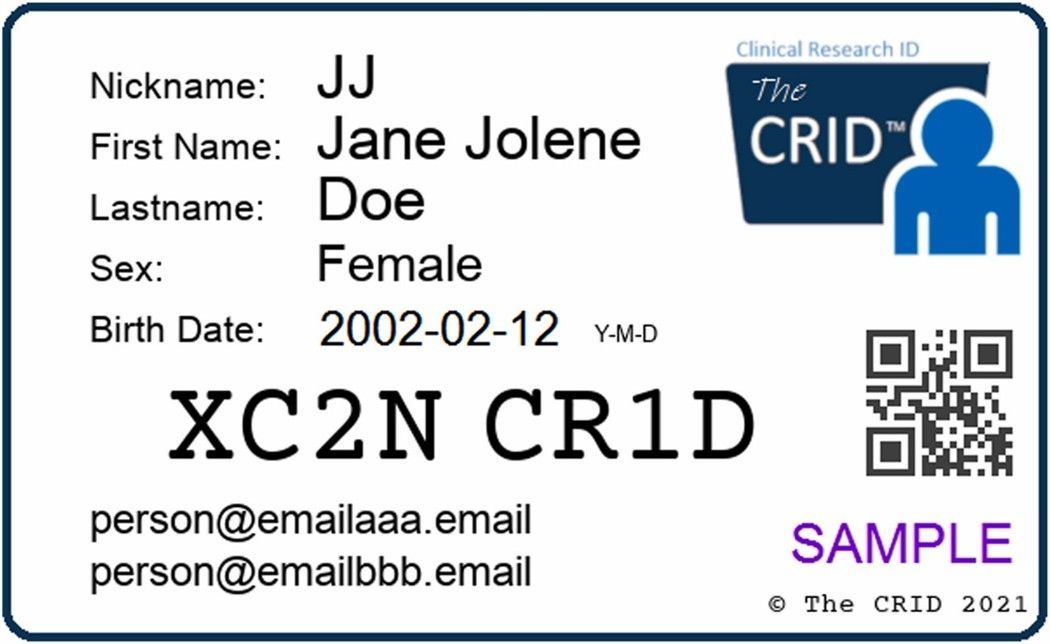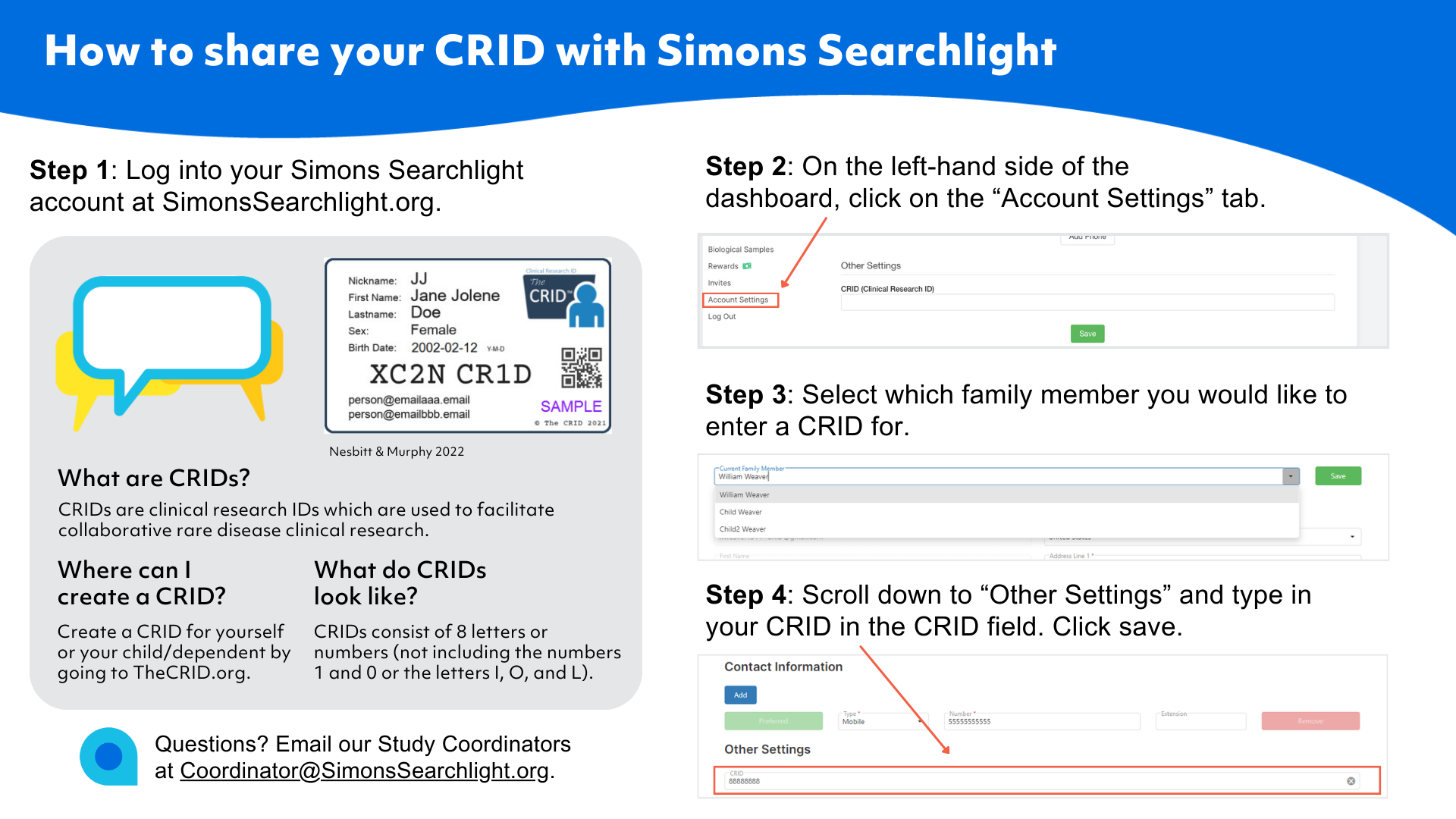Science Snapshot – Clinical Research IDs – What are they and why do they matter for OCNDS research?
Why You Should Sign Up for a Clinical Research ID (CRID)?
At the CSNK2A1 Foundation, we aim to drive progress in understanding and treating Okur-Chung Neurodevelopmental Syndrome (OCNDS). One of the most powerful ways we can achieve this is by partnering with families like yours to advance research. In this Science Snapshot, Dr. Rushing shares how signing up for a Clinical Research ID (CRID) can make a significant impact for OCNDS research.
What Is a Clinical Research ID (CRID)?
The Clinical Research ID (CRID) is a secure and unique identifier that helps connect patients with research opportunities while protecting their privacy. The CRID makes it easier for researchers to identify eligible participants for clinical studies, collect critical data, and accelerate discoveries—all without compromising your personal information.
Why Does the CRID Matter for Rare Diseases?
Rare diseases, including OCNDS, often face unique challenges in research:
- Limited Data: Researchers need as much information as possible to understand these conditions better.
- Small Patient Populations: Finding eligible participants for clinical studies can be difficult.
- Privacy Concerns: Families are understandably cautious about sharing sensitive information.
The CRID addresses all these challenges. By creating a unique identifier for you or your loved one, the CRID streamlines the process of matching participants with studies. It allows researchers to access de-identified data to make meaningful advances while ensuring your privacy is safeguarded.
How the CRID Enhances Data Sharing Across Studies
One of the most valuable features of the CRID is its ability to enable the use of research data across multiple studies. When you or your loved one participates in a study, the data collected is linked to your CRID. This means researchers can access this data—in a de-identified and secure manner—for other approved studies without needing additional input from you.
This interconnected approach:
- Maximizes Impact: Data from a single study can contribute to numerous research efforts, amplifying its value.
- Eliminates Redundancy: Researchers can avoid duplicating efforts by using existing data, saving time and resources.
- Drives Collaboration: By sharing data across studies, researchers can uncover broader patterns and insights, leading to breakthroughs that might not be possible in isolated studies.
This streamlined data sharing not only accelerates the pace of discovery but also ensures that every contribution you make has a far-reaching impact on the rare disease research landscape.
How Signing Up Helps
When more families sign up, researchers gain access to a larger, more diverse pool of data, helping them uncover patterns and insights faster. Additionally, by signing up for a CRID, you’ll be notified about studies that match your profile, giving you the chance to participate in groundbreaking research.
Your Role in Advancing Science
You might wonder: Does one person really make a difference? The answer is a resounding YES. In the world of rare disease research, every single data point matters. By signing up for a CRID, you’re contributing to a collective effort to advance knowledge, develop treatments, and improve outcomes for families just like yours.
How to Sign Up
Getting started with a CRID is simple:
- Visit the CRID website at https://thecrid.org/.
- Follow the step-by-step instructions to create your unique identifier.
- Keep your CRID handy to share with your healthcare provider or when signing up for a study.
What happens during sign up?
First, the patient/caregiver will create an account using their email address as their login name and a password that must meet a certain level of complexity (password must be at least 8 characters in length and contain at least one upper letter, one lowercase letter, a number and a special character). Once their account has been created, the patient can create CRID identifiers for up to 5 patients (i.e. for themself and/or their children). The CRID ‘card’ contains basic patient information and the CRID identifier (8 alphanumeric characters and a QR Code). The patient/caregiver can also exercise their right to delete their account at any time. The application currently supports 8 different languages, including English (US and UK), Spanish, French, Portuguese, Italian, German, Dutch and Irish.
Example of the CRID ‘card’:

Together, We Can Make a Difference
The journey to better understanding and treating OCNDS is a marathon, not a sprint. But with tools like the CRID and the unwavering support of families like yours, we’re making incredible strides every day. Your participation drives the discoveries of tomorrow.
Want to learn more?
You can read the CRID publication here:
https://www.sciencedirect.com/science/article/pii/S2352914822001186
You can also share your CRID with Simons Searchlight:

Questions?
Please email research@csnk2a1foundation.org
